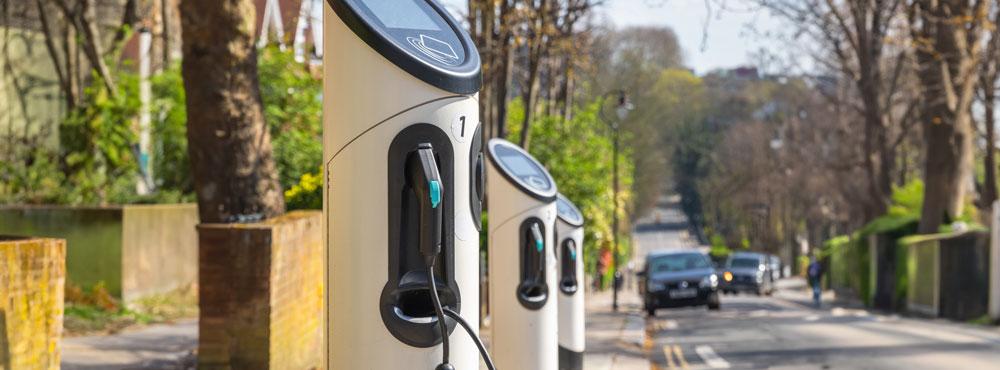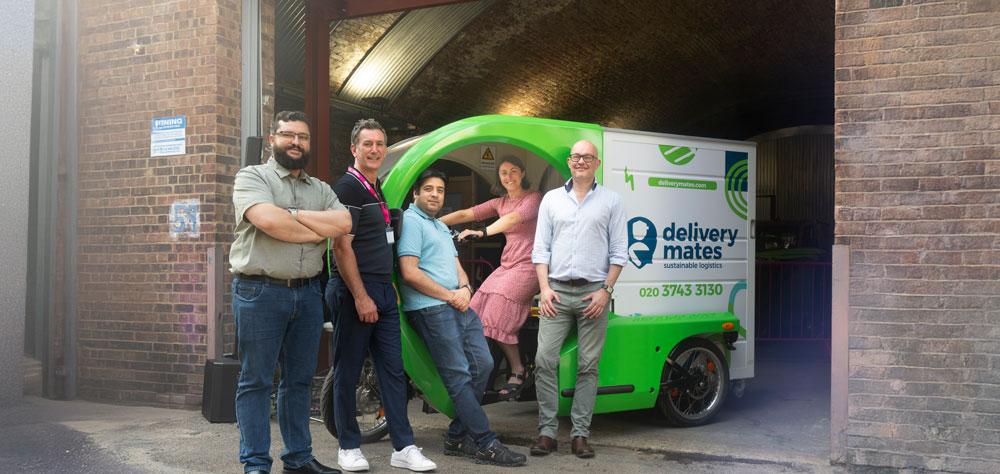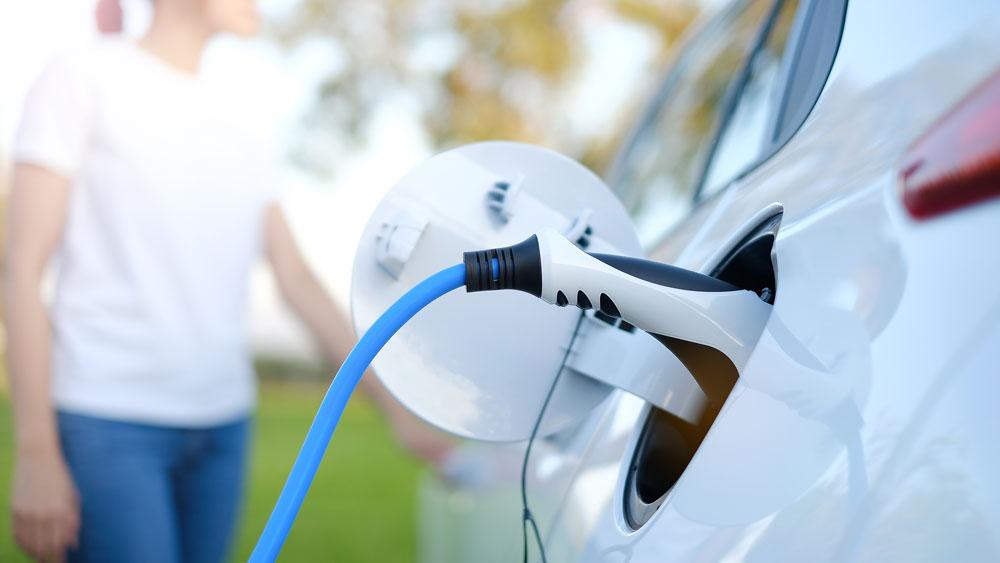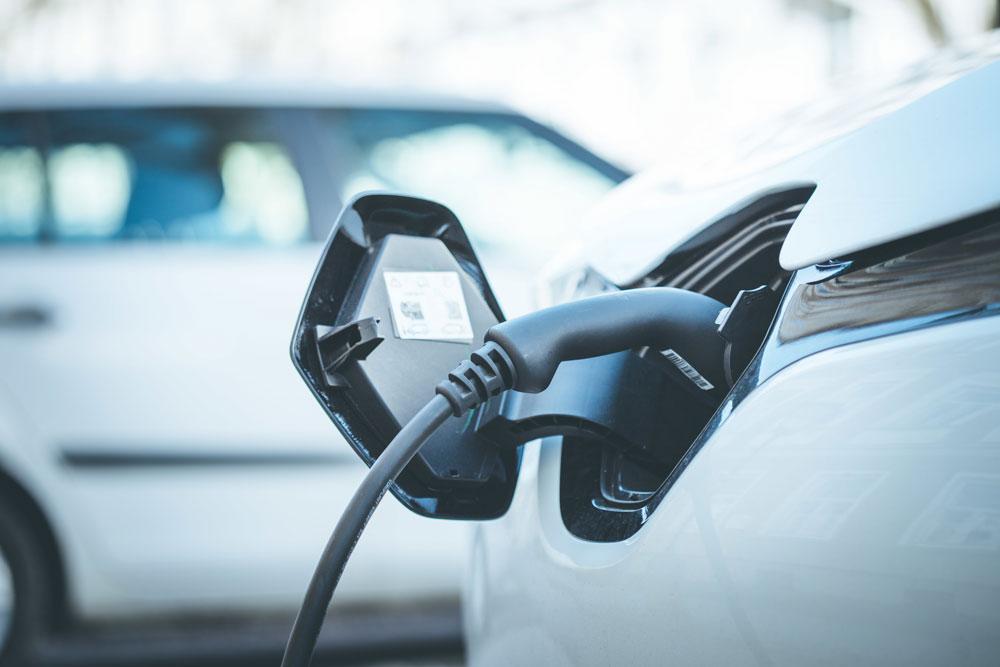The EV infrastructure grant for staff and fleets is for small and medium-sized businesses with 249 employees or less. We summarise what the grant covers, as well as what other government funding schemes are in place to help organisations switch to zero-emission vehicles.
One of the main barriers to fleet electrification for smaller businesses is the upfront costs involved, even when whole life costs are better than with traditional ICE vehicles. That said, recent research from New Automotive reveals that the average upfront cost of a new electric vehicle (EV) is just 12 per cent more than the petrol equivalent – putting upfront price parity within reach.
Installing workplace charging, if needed, also incurs an expense, which may be off-putting to smaller businesses.
There is, however, government funding available to help smaller businesses make the transition to electric vehicles, which is summed up here.
EV infrastructure grant
The EV infrastructure grant for staff and fleets is for small-to-medium-sized businesses in the UK with 249 employees or less. It can help cover the cost of wider building and installation work, such as wiring and posts, that’s needed to install multiple chargepoint sockets. The work can be for sockets that are to be installed now and in the future.
Funding is confirmed until 31 March 2025, and covers up to 75 per cent of the cost of the work. There is a limit of £15,000 per grant and you can get up to £350 per chargepoint socket installed and £500 per parking space.
Organisations can receive up to five grants across five different sites.
The chargepoint can only be used by the building’s staff and vehicles and cannot be used by members of the public.
Each parking space that is having a chargepoint installed must be off-street, private and clearly defined, but it does not have to be part of the property. The parking space must be owned by the organisation applying for the chargepoints, or be a space that they have the legal right to use. The chargepoint must be from an OZEV approved list.
Workplace charging scheme
Small businesses can also apply for the Workplace Charging Scheme (WCS). It is open to businesses, charities, public sector organisations and small accommodation businesses, such as hotels or campsites with 249 employees or less. Funding for this is confirmed until 31 March 2025.
The grant covers up to 75 per cent of the total costs of the purchase and installation of EV chargepoints and is capped at a maximum of £350 per sockets and 40 sockets across all sites per applicant.
Applicants must have dedicated off-road parking that is clearly associated with the premises, or permission from the landowner if they don’t own it. Applicants should have their site surveyed by an installer before they apply for the grant.
Organisations must provide evidence that the parking is for their staff or fleet, not for customer use, and there must be parking spaces that are suitable for chargepoint installations. All chargepoint parking must be designated to the applicant, although the rest of the car park may be shared with other organisations.
If it’s a public authority, charity or small accommodation business applying, there is no restriction on who may use the parking – customers, guests, visitors, staff or others.
If it’s a business applying, the chargepoints can only be used by staff/fleets, but it can allow local residents to use them outside of office hours when they will not typically be used by the company’s staff or fleet vehicles.
Chargepoints may be made available for use by the public – if this is done, they must comply with the Public Chargepoint Regulations 2023 and associated guidance.
Plug-in vehicle grant
The plug-in vehicle grant remains in place for taxis, motorcycles, vans, trucks and wheelchair accessible vehicles. Buyers do not apply for the grant, it is offered as a discount in the purchase price by the seller.
The grant for small vans applies to vehicles that are less than 2,500kg gross vehicle weight, have CO2 emissions of less than 50g/km and can travel at least 60 miles with no emissions. The grant will pay for 35 per cent of the purchase price for small vans, up to a maximum of £2,500.
The grant for large vans meanwhile is for vehicles that are between 2,500kg and 4,250kg gross vehicle weight, have CO2 emissions of less than 50g/km, and can travel at least 60 miles without any emissions at all. The grant will pay up to a maximum of £5,000.
The grant for taxis can be used on vehicles with CO2 emissions of less than 50g/km that can travel at least 70 miles without any emissions at all, such as the Dynamo Taxi and LEVC TX. The grant will pay for 20 per cent of the purchase price for these vehicles, up to a maximum of £7,500.
The grant for small trucks is for vehicles that are between 4,250kg and 12,000kg gross weight, with CO2 emissions of at least 50 per cent less than the equivalent conventional Euro VI vehicle that can carry the same capacity and can travel at least 60 miles with no emissions. The grant will pay for 20 per cent of the purchase price, up to a maximum of £16,000. The grant for large trucks is up to £25,000. To be eligible for a grant, the vehicle must be heavier than 12,000kg, have CO2 emissions of at least 50 per cent less than the equivalent conventional Euro VI vehicle that can carry the same capacity, and be able to travel at least 60 miles without any emissions.
Funding for schools
Education settings now have access to a dedicated grant, called the Workplace Charging Scheme for state-funded education institutions.
State-funded education settings, including schools, colleges, nurseries and academies, can apply for the grant which provides up to 75 per cent of the cost to buy and install chargepoints, up to £2,500 per socket - which is a rise from the previous £350 which schools were able to receive through the Workplace Charging Grant.
The grant aims to boost the chargepoint facilities for staff and visitors, and has the potential to help schools generate revenue by making their chargepoints available to the public.
Applications for the grant are made online, and the closing date is 31 March 2025. Successful applicants will receive a voucher that is valid for 180 days from the date of issue and the installation must be completed within this time.
Independent schools are not eligible for this grant but can apply for funding through the Workplace Charging Scheme and the Electric vehicle infrastructure grant for SMEs.
Advice for installing EV charging
Before embarking on a charging infrastructure project, there are many points to consider. Firstly, the organisation will need to understand the power availability of the site. This involves finding out the size of the agreed supply capacity (ASC) from the local district network operator (DNO), how much of that power is used, and what spare capacity remains for EV chargers.
This needs to be done so the site does not exceed its supply and risk a power outage.
If the site does have power limitations, there are ways to get grid connection upgrades via the district network operator, although this can be expensive and take time.
Other ways include using smart chargers with load balancing capabilities, or having the ability to generate your own power, such as solar, used with energy storage.
Load balancing systems/software will use real time energy monitoring to change the maximum amount of energy that chargers can use based on availability and requirement of the site.
An important part of the EV installation process is getting a site survey. This will assess how EV charging can be installed and engineers will typically visit the site to assess power requirements and if any groundworks would need to be done. A good chargepoint installer will be happy to do this as part of their service.
If the building is not owned by the applicant, they will need to obtain consent from the landlord for chargepoints to be installed. This can be time consuming and may involve legal work, so it’s worth beginning these conversations as early as possible.






